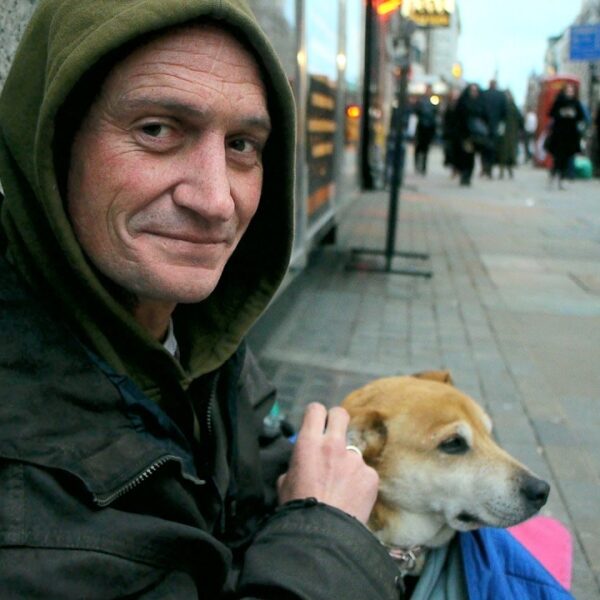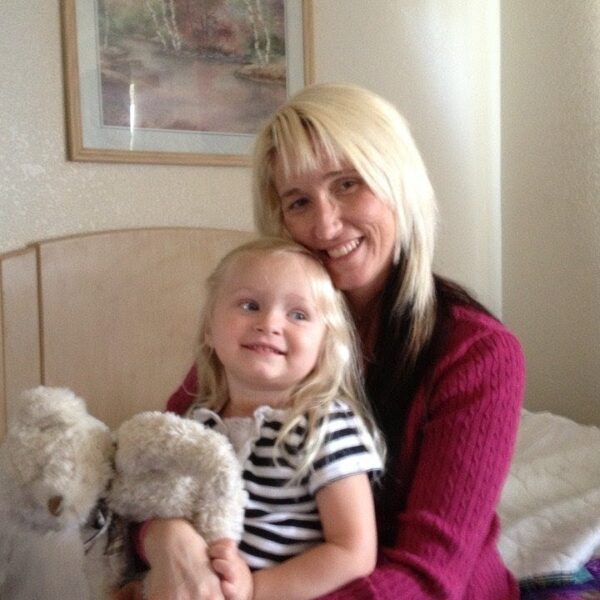I went for a walk along my city’s quay last night. It had been a long week at the hospital, and increasingly warm weather made an evening stroll impossible to resist. The wooden planks underfoot were filled with appreciative notes to healthcare workers, the city’s hospital being one metro stop away from the quay. Multicolored chalk messages to doctors, nurses, care aids, janitorial staff, etc. were like a soothing balm for a weary soul.
Tangible, visible, physical manifestations of appreciation, cheering healthcare workers on, have been on the rise during this pandemic. The 7 o’clock cacophony of clanging pots and pans, cheering, horns from cars, trains, and boats, uninterpretable yelling—we assume the best.
We’ve needed it. Your sentiments make our job just a bit easier. So, thank you. (Mind you, I work in some nondescript windowless hospital laboratory with little to no direct patient contact. My frontline colleagues deserve the accolades, not me.)
Can one be appreciated and feared at the same time? I’ll admire you, but from a safe distance.
Distance is probably a good rule of thumb these days. But have healthcare workers become like the danger an ocean poses? Awesome to look at from a distance, but one does well to maintain a healthy fear of its unfathomable power. Perhaps that analogy was a bit ham-fisted. But the reality is that some healthcare workers are running into obstacles when trying to find a place to live. Although undoubtedly appreciative of the role healthcare workers play in this fight, landlords are becoming increasingly hesitant to let out their homes to medical staff. A new brand of tenant profiling has emerged.
‘I’d Rather Be Strapped for Money than Be Dead’
… so said one landlord in Canada’s capital. She agreed to rent out a room to Kathrine Slinski, a community nurse who works primarily with palliative care patients. Paperwork had been signed and a damage deposit paid. But on the day Slinski was supposed to move into her new home, she received a text from her landlord.
“She was concerned that I would expose her to the COVID virus, and since she was considered a high-risk person, she just couldn’t rent the room to me,” recounts Slinski. She tried to assure her anxious landlord that she would take precautions when arriving home – thoroughly wash her hands and make sure her work clothing was removed before coming into the home.
At the end of the day, Slinski sympathizes with the owner. “I can absolutely understand her point of view and agree with her concerns. I’m just upset because she chose the day I was supposed to be moving into her home, when I’ve already made all the arrangements and paid her all the money. And now I have nowhere to go.”
Slinski said she’s planning on staying with a stranger who reached out to her on Facebook.
The previously mentioned landlord that got cold feet on moving day wasn’t the only one that expressed concern. Slinski said that she had been open about her employment with all prospective landlords. Many wouldn’t even give her a viewing because “they didn’t want to take the risk.”
Those words can be hard to swallow. Are those same landlords banging pots and pans at 7 o’clock to show their ‘support’ and appreciation for their city’s healthcare workers?
A nurse in Toronto was evicted last month over similar fears. A series of escalating disputes stemming from the owner’s fears about health and safety in their house resulted in the nurse being forcibly evicted with police at the scene.
Worldwide, ostracism against medical staff is taking hold. India has a relatively low number of COVID cases. But some doctors there have reported being evicted or facing threats that their utilities will be cut off. “Many doctors are now stranded on the roads with all their luggage, nowhere to go, across the country,” read a letter from the Resident Doctors’ Association of New Delhi’s All India Institute of Medical Sciences.
A paramedic working for the UK’s National Health Service was evicted from his flat last month. The owner asked him to leave his home within 24 hours, saying that “it’s only a matter of time before you are in contact with the virus… Sorry, I normally would never do this. But it’s not with the risk.” It comes full circle, though. The paramedic states that because he’s now housing-insecure, he won’t be able to work some of his scheduled shifts. That’s one less soldier on the battlefield when what we need is more.
Airbnb and Hotels to the Rescue
If you predicted that the vacation homes and condo rental companies would be leading the charge when it comes to providing medical staff with safe places to stay, well done! I sure didn’t. But Airbnb is doing just that, “partnering with hosts to connect 100,000 healthcare staff and first responders with places to stay that allow them to be close to their patients—and safely distanced from their own families.” The rental platform is offering free or reduced-rate accommodation to doctors, nurses and other front-line medical staff.
Some health authorities have partnered up with hotels to “protect the health and safety of their staff and their families”. Eligible medical staff members are allowed to stay for free or at reduced rates at certain hotels if they experience housing insecurity or are unable to self-isolate at home. Hotels are also being used to house vulnerable homeless people during the pandemic who have been discharged from hospitals but need a place to recover.
Sympathize, Not Demonize
The intention of this piece is not to frame the previously cited landlords as antagonists. It’s not difficult to sympathize with their concerns. We’re experiencing a culture of fear that I certainly haven’t encountered in my lifetime. A seemingly inexhaustible stream of media coverage has exacerbated these fears.
The other night I had dinner with friends and we agreed to have a “COVID-19 conversation detox.” No one was allowed to mention the pandemic while we dined. I think we made it to the 20-minute mark. Not bad—it was a longer break than I’ve had in weeks.
That constant news stream of infection and death rates invariably affects our world view. Maybe it should. We keep hearing about how we have to change. And we are. For the most pedestrian of examples of our new world, think of the width of berths we give people now when we pass them on the street. People are genuinely scared of each other. So, why wouldn’t this fear translate to the oft turbulent relationships between landlords and their tenants?
On Tuesday, I’ll be trying something new
Laboratory technologists are being “redeployed to meet evolving site needs.” I’ll be on the front lines, decked out in full PPE, asking visitors what brings them to the hospital, whether they have a fever, or a new or worsening cough. They’re even giving me a security guard. I’m hoping he/she will be unnecessary—just a precaution, I’m sure. But what does that say about the current environment of fear that confronting someone and asking if they may have symptoms could put us in jeopardy somehow?
So, I’m going to scrub up, don my mask, eye protection and gloves, and try to endear myself to my assigned security detail so that they will come to my aid should I need it. Sounds like a fun morning. It becomes somewhat easier knowing that after my shift at the hospital, I’ll be heading home to a roof over my head, a warm meal, a laundry machine to wash the clothes I wore, and an old Portishead or Massive Attack album to listen to. I’ve been on a Brit trip hop fix these days. It must be the dystopian sounds that feel appropriate, if not cathartic. And at 7 o’clock, I’ll listen appreciatively to a cacophony of pots and pans from my neighbors.













